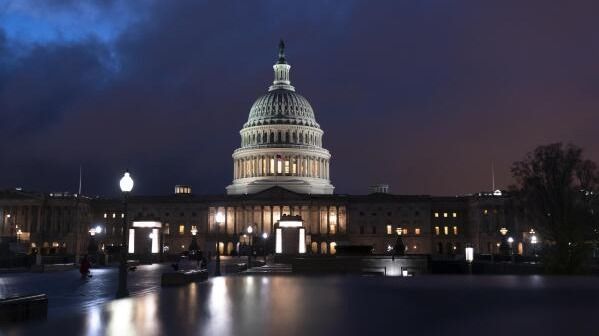The economic and technological rivalry between the U.S. and China has come to the drone market, with Chinese-made flying devices a dominant player in America.
Lawmakers in Washington are now seeking to ban new sales of drones from two dominant Chinese manufacturers.
They argue they could be used to spy on Americans and that the low-cost models are hurting the U.S. drone industry.
A massive defensive bill expected to pass Congress would bar new drones from DJI Technology and Autel Robotics should a review find them to pose an “unacceptable” risk to national security.
It was the role of drones in everyday life that drove Sen. Rick Scott, a Florida Republican, to get Congress to restrict the purchase of Chinese drones by federal agencies.
Those restrictions were included in a bill that President Joe Biden signed last year.
DJI, named in the latest bill, is the best-known Chinese drone brand.
The company has the lion’s share of the global drone market and is a dominant player in the U.S. market.
Its drones have been used by first responders to locate victims, mappers to survey roads and utility lines, mosquito control officers to reach swarms of larvae, and filmmakers to capture aerials.
Founded in 2006 and based in the southern Chinese city of Shenzhen, DJI makes devices that are known for their affordability and high performance.
They are even used on the battlefield in Ukraine by both sides, even though DJI does not make military drones.
As U.S.-China relations soured, DJI drones came under scrutiny.
The U.S. government has put the company on several blacklists, citing human rights concerns as well as alleged links to the Chinese military.
DJI has denied any wrongdoing, and is suing the Pentagon over the designation that it is a Chinese military company.
U.S. customs officials have also blocked some DJI shipments over concerns that the products might have been made with forced labor.
DJI has called it “a customs-related misunderstanding”.
In response to the budget proposal, DJI has demanded fairness.
Users say Chinese drones can’t be easily replaced.
Russell Hedrick, a North Carolina farmer, flies drones to spray fertilizers on his corn, bean and wheat fields at a fraction of what it would cost him to use a conventional ground spreader.
A drone spreader costs $35,000, while a ground sprayer would cost $250,000, he said.
As a volunteer rescuer, Hedrick uses thermal drones to search for people trapped and cargo drones to send supplies to those who are stranded — something he did after Hurricane Helene.
At the Interior Department, the ban on foreign-made drones has resulted in a “loss of opportunities to collect data on landscape, natural and cultural resources, wildlife and infrastructure,” according to a September report by the U.S. Government Accountability Office.
AUVSI, an advocacy group for unmanned vehicles such as drones, has argued against an immediate ban.
Instead, the group has urged the government to support the domestic drone-making industry through investment so it can catch up with its Chinese competitors in both capability and cost.
Congress Seeking to Ban New Sales of Chinese-Made Drones in the US world-news World News | Latest International News | Global World News | World Breaking Headlines Today




